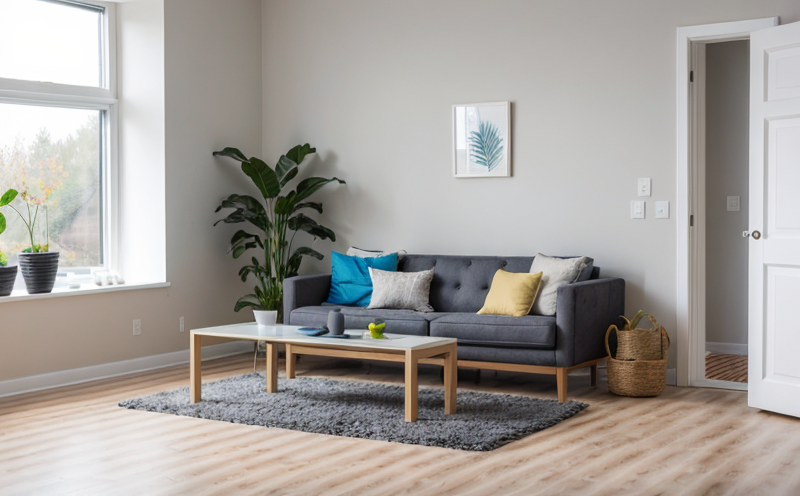Indoor Air Quality & Filtration Testing
In today’s world, indoor air quality (IAQ) is a critical concern, especially in enclosed spaces such as offices, schools, and healthcare facilities. Poor IAQ can lead to various health issues ranging from mild discomforts like headaches and dizziness to severe respiratory diseases. Ensuring that the filtration systems of HVAC equipment are functioning correctly is key to maintaining high indoor air quality. This service focuses on testing and validating filtration systems within HVAC units to ensure they meet stringent standards for clean, safe air.
Our team of experts uses advanced instrumentation to simulate real-world conditions under which HVAC filters operate in actual buildings. We test various parameters including dust penetration rates, pressure drop across the filter media, particle capture efficiency, and airflow. These tests are crucial as they help identify any inefficiencies or potential failures before they cause significant issues.
For instance, our lab employs ISO 16890:2017 and ASHRAE 52.2-2013 standards for particle capture efficiency testing. This ensures that the results are consistent with international benchmarks recognized worldwide. The test setup includes a dust injection system capable of generating particles across different sizes, enabling us to assess how effectively the filter traps these contaminants.
Understanding the importance of proper filtration also extends beyond just removing particulate matter; it involves controlling biological growth within HVAC systems which can release allergens and other irritants into the air. Our testing protocols include microbiological sampling methods compliant with EN 1822-1:2014 to detect mold spores, bacteria, and viruses that might otherwise be distributed through the ventilation system.
The data collected during these tests provides clients with comprehensive insights into their HVAC systems' performance. This information is invaluable for quality managers looking to optimize operational efficiency while maintaining regulatory compliance. Compliance officers can rely on our findings when preparing for audits or seeking certification from recognized bodies like LEED or BREEAM.
R&D engineers benefit greatly from this service as they can use the results to refine designs and improve future iterations of filtration technologies. Procurement professionals will find value in knowing which manufacturers provide reliable, efficient products that meet stringent performance requirements without compromising on cost-effectiveness.
Why It Matters
The quality of indoor air significantly impacts occupant health and productivity. Poor IAQ has been linked to increased absenteeism due to illness, reduced cognitive function, and general discomfort among employees or students. By ensuring that HVAC filtration systems are properly tested and maintained, organizations can create healthier environments leading to better overall well-being.
From an environmental perspective, effective filtration helps reduce the amount of particulate matter released into the atmosphere from indoor sources such as dust, pollen, and other pollutants. This contributes positively towards improving outdoor air quality at large scale levels too. Additionally, efficient filters contribute to energy savings by reducing the load on HVAC systems which translates directly into lower operational costs for businesses.
Regulatory compliance plays a vital role here; many jurisdictions have strict regulations regarding indoor air quality and filtration efficiency. Failure to meet these standards can result in fines or even legal action against offending parties. Our testing services not only help organizations comply with local laws but also prepare them for potential future changes in legislation.
International Acceptance and Recognition
The importance of indoor air quality and filtration testing is widely acknowledged globally, reflecting its critical role in public health. International standards such as ISO 16890:2017 have been adopted by numerous countries to ensure consistency and reliability across borders.
- ISO 16890: Provides a classification system for air filters based on particle size, filtration class, and cleanliness level. This standard is used internationally as it provides clear guidelines for specifying filter performance in HVAC systems.
- ASHRAE 52.2-2013: Focuses specifically on the testing of general purpose air filters. It establishes methods for determining various characteristics like dust loading, pressure drop, and filtration efficiency under specific conditions.
Recognition from these standards adds credibility to the results obtained through our testing services. Compliance with such recognized protocols ensures that clients receive accurate and reliable data which can be used confidently by stakeholders involved in decision-making processes related to IAQ.





